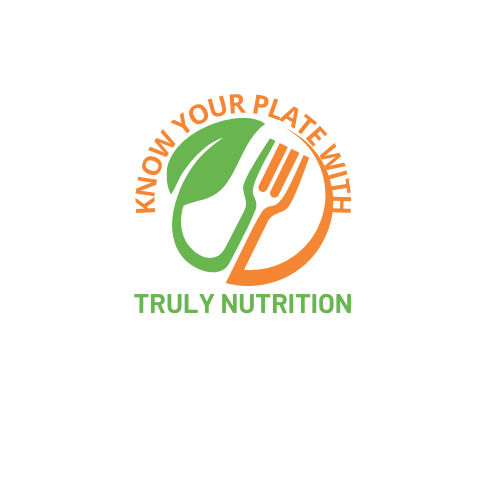Protein is often hailed as the building block of life, and for good reason. It plays a crucial role in various bodily functions, from muscle development and repair to hormone regulation and immune system support. However, its significance goes beyond mere muscle-building; protein is essential for detoxification, growth, and overall well-being.
Importance of Protein in Detoxification:
One lesser-known function of protein is its role in detoxification. The body is constantly exposed to toxins from the environment, food, and metabolic processes. Proteins, particularly those found in the liver, are instrumental in neutralizing and eliminating these harmful substances. Specific enzymes, known as cytochrome P450 enzymes, facilitate the detoxification process by breaking down toxins into less harmful compounds that can be excreted from the body. Sulfur-containing amino acids, particularly methionine and cysteine, play a crucial role in the body's detoxification processes by supporting glutathione synthesis, phase II detoxification reactions, metal chelation, and the sulfation pathway. Ensuring an adequate intake of these amino acids through dietary sources is essential for supporting optimal detoxification. Without adequate protein intake, the body's ability to detoxify efficiently can be compromised, leading to a buildup of toxins and potential health issues.
Protein for Growth and Repair:
Protein is indispensable for growth and repair throughout the lifespan. During childhood and adolescence, it is crucial for proper growth and development, including the formation of new tissues and organs. In adulthood, protein continues to play a vital role in repairing damaged tissues, maintaining muscle mass, and supporting overall health. Whether recovering from injury or engaging in regular exercise, adequate protein intake is essential to support the body's repair processes.
Recommended Dietary Allowance (RDA) for Protein:
The Recommended Dietary Allowance (RDA) for protein varies based on factors such as age, sex, weight, and activity level. Generally, the RDA for adults is around 0.8 grams of protein per kilogram of body weight per day. Some research suggests that older adults may benefit from consuming 1.0 to 1.2 grams of protein per kilogram of body weight per day. However, individual protein needs may differ, with athletes, pregnant women, and those recovering from illness or injury requiring higher protein intake. Consulting with a healthcare professional or registered dietitian can help determine specific protein needs based on individual circumstances.
Ways to Include Protein in Your Diet:
Incorporating protein into your diet doesn't have to be challenging, and there are plenty of delicious options to choose from. Here are some convenient ways to increase your protein intake:
- Lean Meats and Poultry: Chicken breast, turkey, lean beef, and pork loin are excellent sources of high-quality protein.
- Fish and Seafood: Salmon, tuna, trout, and shrimp are not only rich in protein but also provide essential omega-3 fatty acids.
- Eggs: Eggs are a versatile protein source that can be enjoyed in various forms, such as scrambled, boiled, or as an omelet.
- Dairy Products: Milk, yogurt, cheese, and cottage cheese are all rich in protein and provide essential nutrients like calcium and vitamin D.
- Legumes: Beans, lentils, chickpeas, and peas are plant-based sources of protein that are also high in fiber and micronutrients.
- Nuts and Seeds: Almonds, peanuts, chia seeds, and hemp seeds are nutritious snacks packed with protein, healthy fats, and antioxidants.
Vegan Options for Protein:
For those following a vegan or vegetarian diet, there are plenty of plant-based protein sources to choose from. Here are some vegan options to consider:
- Tofu and Tempeh: Soy-based products like tofu and tempeh are versatile protein sources that can be incorporated into various dishes.
- Quinoa: Quinoa is a complete protein, meaning it contains all nine essential amino acids, making it an excellent plant-based protein option.
- Seitan: Made from wheat gluten, seitan is a popular meat substitute that is high in protein and can be used in place of meat in many recipes.
- Legumes and Pulses: Beans, lentils, chickpeas, and other legumes are rich in protein, fiber, and other essential nutrients.
- Nuts and Nut Butters: Almonds, peanuts, cashews, and other nuts, as well as nut butters, are protein-rich snacks that can be enjoyed on their own or added to meals.
Protein Powders a convenient way to meet the protein needs:
Protein powders are convenient and popular supplements that can help individuals meet their daily protein needs, especially for those who may struggle to consume enough protein through whole food sources alone. These powders typically come from various protein sources, including whey, casein, soy, pea, rice, hemp, and others. Consider your individual protein needs, goals, and lifestyle when incorporating protein powders into your diet. Some individuals may benefit from specific types of protein powders based on factors such as exercise routine, dietary restrictions, or health conditions. Opt for products with minimal additives and ingredients that align with your nutritional preferences.
In conclusion, protein is a vital nutrient that is essential for detoxification, growth, and overall health. By incorporating a variety of protein-rich foods into your diet, you can ensure that your body receives the necessary nutrients it needs to thrive. Whether you prefer animal-based or plant-based sources, there are plenty of delicious options available to meet your protein needs and support your well-being.


_1709040609_947112.jpg)